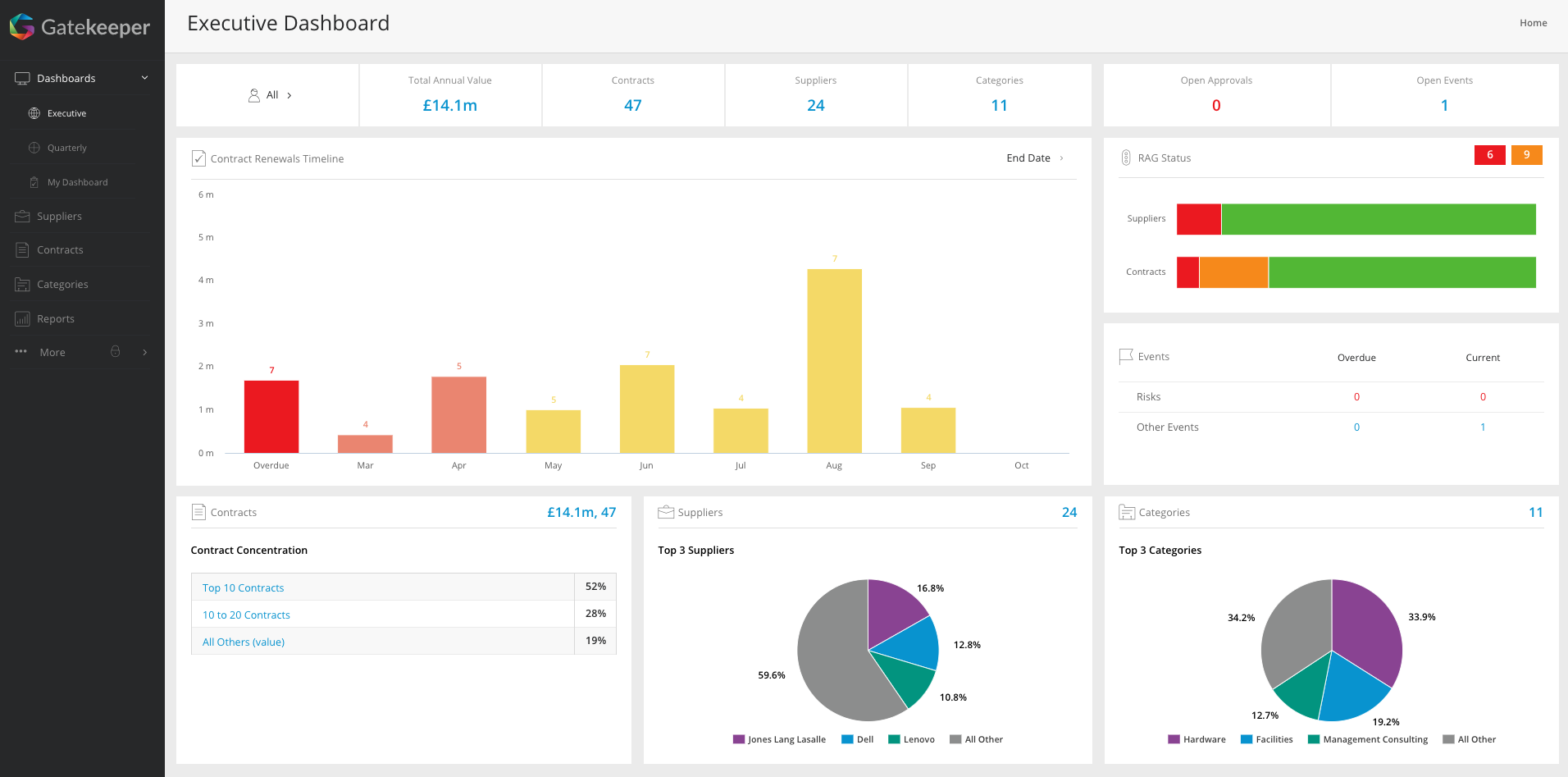

Contract management best practices can unlock significant value for businesses by creating cross-departmental time-savings, driving down costs and reducing business risk.
And many of these best practices are simple to implement, meaning this value is easily attainable. Yet businesses will still overlook these opportunities in favour of other initiatives with less certain upsides.
In this article, we’ll explain how to audit your current contract management processes and identify the combination of quick wins and longer-term activities that will drive your business forward and give it a stable platform for future growth.
Let’s start with some of the common scenarios that businesses tend to be encountering when we first speak to them about contract management. Ask yourself these questions:
If any of these scenarios sound familiar, your contract management processes can benefit from being audited.
By regularly reviewing how your contracts are managed you can identify any shortcomings in your approach and overall contract governance, allowing you to make significant improvements that benefit the business as a whole.
An in-depth audit can help you to:
Carrying out the audit will enable your business to identify contract risks early on – whether financial, regulatory or operational – and take action.
By improving internal processes, you can in turn mitigate external risks that are introduced by third-party suppliers."
An audit of your contract management processes should be carried out regularly, ideally once every quarter.
Contract management can look different to businesses depending on their size, internal resource and how complex their contracts are. However, there are a few commonalities that all businesses need to prioritise to best position themselves for effective contract management.
When auditing your processes, you should prioritise the steps below.
Managing contracts with Excel is great for businesses taking their first step into contract management, while enterprise-ready software will help large businesses to get a better handle on their portfolio.
But in both scenarios, if the contracts aren’t securely accessible to individuals or teams that need them, effective contract management falls down at the first hurdle.
Your contracts need to be stored centrally, securely and be easy to access, from wherever the team members are.
In a world where remote working is fast becoming the norm, contracts and their information are of no use to anyone if they are under lock and key in a filing cabinet at the office or in an Excel spreadsheet stored on someone’s hard drive."
Likewise, businesses using sophisticated software need to ensure that employees are assigned with the right levels of access, even if the contracts have been centralised.
When accessibility is optimised, your business gives back time and control to teams that are usually overwhelmed. Instead of spending hours trying to locate contracts and find relevant information, self-service can become the norm. That way, the central team or person can spend time focusing on their day-to-day and overall objectives.
A lot of time is spent on contract generation leading many businesses to template their approach – especially when the same types of contracts are created.
Using templates can save businesses time, money and resources – but if they aren’t reviewed regularly, they can also lead to financial and compliance risks."
When auditing this part of your contract management process, you should ask:
If your answer is no to any of the above, your audit signifies that you need to update and optimise the contract management templates you currently have in place.
By doing so, you can ensure that critical contract information isn’t slipping through the gaps and that your templates capture every bit of essential information.
This step can be adapted to the cadence of your audits but it’s an activity that should never be missed. A lack of compliance can damage your reputation, your relationship with suppliers and your business’s profitability. Examples of non-compliance include:
Non-compliance can cause bottlenecks and long-term consequences, some as severe as operational failure. Auditing your compliance issues and acting on them is a necessity for mitigating and minimising risks in the future.
Missed renewals can be a huge financial drain on your business. If your business is spending money without noticing it, hidden costs can soon build up and create unsustainable revenue leaks.
Missed renewals are also a solid indicator that your contract management processes have gone awry. Questions to ask yourself as you audit your renewals include:
If your contract management processes aren’t satisfactory, your answers to the above won’t be either.
By auditing this stage of your processes, you’ll uncover hidden costs, contracts that require reviewing and put yourself in a stronger position when it comes to negotiations – helping you to get the most out of your renewals.
Find out more about how contract management software can help you to manage renewals by watching the webinar below.
Contract management is collaborative by nature, requiring multiple departments and individuals to work together to get the most value from any agreements.
Ways of working need to be standardised, consistent and understood by all – whether internal processes are manual or automated.
To achieve a single version of the truth of both your contract management processes and your contracts themselves, there needs to be shared understanding and knowledge business-wide."
In businesses that use spreadsheets to manage contracts, for example, there is often a guardian of the database – who has knowledge on how to use it locked in their head.
In businesses that use dedicated software, it may be the case that not everyone has bought into the solution – using workarounds and deferring to their preferred way of working instead.
If your contracts are being passed through each of these touchpoints with no alignment between people, processes and technology, your contract management processes will always be fragmented.
Auditing your contract management processes will only be effective if you take the time to analyse the results it delivers. If you discover multiple missed renewals, for example, and do nothing to change your processes around them, your business will continue to experience revenue leaks.
Once you have completed your audit, your business needs to consider how it can optimise its contract management processes.
Depending on the level of contract lifecycle management maturity and the technology you use within your business, you’ll find that dedicated contract management tools can support you with the key building blocks such as:
 Gatekeeper's Executive Dashboard
Gatekeeper's Executive Dashboard
If your contract management processes are fragmented, manual or outdated, contract management software can help you to standardise the way your business works, automate your processes and keep up-to-date with the latest best practices.
Using an intuitive system that keeps your contracts in one place will also benefit you the next time you come to audit your processes. You’ll save time looking for contracts, documentation and templates.
The answer to ‘how many renewals have you missed?’ will be zero and seamless processes will demonstrate that your people and technology are perfectly aligned - leading to enhanced collaboration.
If you want to know more about auditing your contract management processes and how Gatekeeper can help you to optimise your current practices, access our contract management resources or book a demo today.
Ready to improve your contract & vendor management?
.png)
.png)
.png)
-4.png)
Before Gatekeeper, our contracts
Anastasiia Sergeeva, Legal Operations Manager, BlaBlaCar
were everywhere and nowhere.
Gatekeeper is that friendly tap on the shoulder,
Donna Roccoforte, Paralegal, Hakkasan Group
to remind me what needs our attention.
Great System. Vetted over 25 other systems
Randall S. Wood, Associate Corporate Counsel, Cricut
and Gatekeeper rose to the top.
Thank you for requesting your demo.
Next Step - Book a Call
Please book a convenient time for a quick call to discuss your requirements.